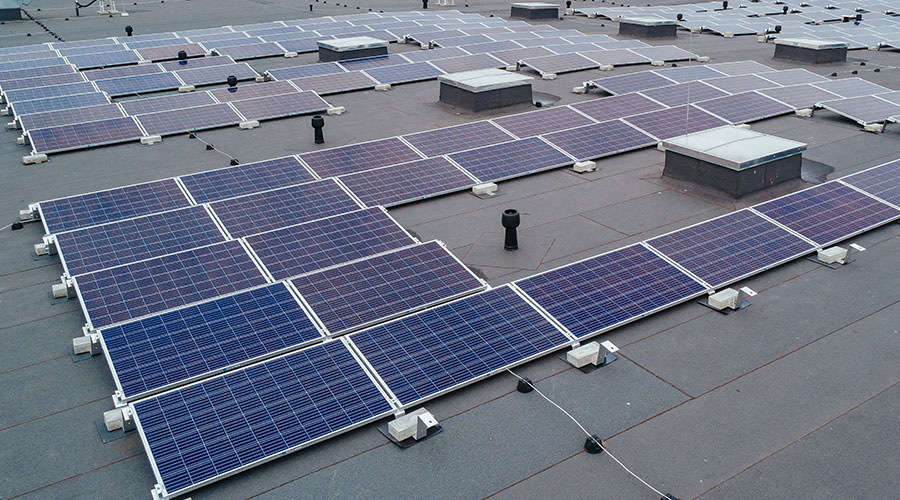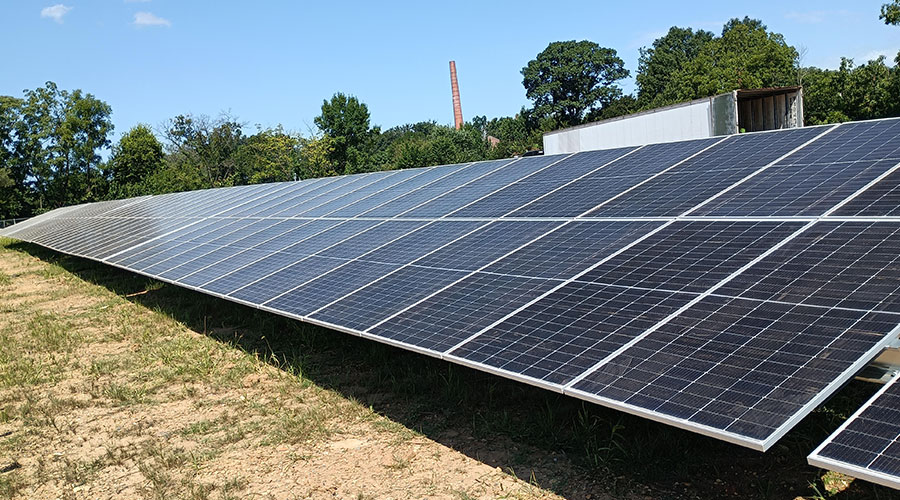Cleaner Energy Sources Benefit Bottom Line at Vanderbilt University
Part 1 of a 3-part article on Vanderbilt University's energy efficiency HVAC project
Vanderbilt University has at least one thing in common with many education facilities across the country. In the last year, it has moved away from coal to generate electricity, heating and cooling to the university’s facilities and medical center.
When Vanderbilt stopped using coal at its cogeneration power plant, the conversion from coal and natural gas to exclusively natural gas checked plenty of boxes when it comes to improving sustainability, energy efficiency and the bottom line.
The $29 million upgrade of the university’s power plant featured the installation of three new dual-fuel boilers to replace coal boilers. The new equipment helped the university save more than $11 million in plant maintenance costs, and it modernized plant operations at the 330-acre campus in Nashville, Tenn.
“We went from a control room that was all manual gauges and gauges that didn’t work anymore to all automation with big-screen televisions,” says Mitch Lampley, the university’s director of operations and technical support for plant operations. “The thing I’m most proud about is the (new) control room. We gave them a control room that I’m not embarrassed to take a tour to.”
Beyond coal
Vanderbilt University’s power plant provides electricity and steam to about 250 buildings containing 12 million square feet of space at the university and its medical center. With the existing plant facing potentially hefty maintenance expenses, as well as government regulations that continue to tighten controls on power plant emissions, the university started the process of converting its plant to natural gas in fall 2013.
“We were getting to the point where we were spending a lot of money on (plant) maintenance, a lot of money just to keep it running,” Lampley says. “And from a Vanderbilt student standpoint, we had a huge push to get off coal.”
“Coal is a dirty word in some people’s minds. I get reminded every time I talk about us going green and getting off coal that we’re still burning fossil fuels. We’re just not burning the dirty one. But in the grand scheme of things, this project brought our greenhouse gas and emissions numbers down.”
The plant-upgrade project included the installation of three new dual-fuel boilers, including two standalone, high-efficiency natural gas boilers with fuel-oil backup. The third boiler is a heat-recovery steam generator attached to a new solar gas turbine that can use both natural gas and fuel oil.
The university also installed underground tanks capable of storing 100,000 gallons of fuel oil to support the dual-fuel option.
Vanderbilt last burned coal in November 2014, and officials are still determining the exact emission reduction impact, but Lampley anticipates a 20-40 percent reduction in greenhouse gas emissions. The addition of new boilers also helped streamline steam-producing operations.
“In the new plant, all three gas turbines can operate together,” Lampley says. “The plan was to size them so that even in the summer during our minimum steam load that we would generate 100 percent of the electrical generation of all three turbines. The waste heat or steam delivered off three turbines, we wanted to keep that at or below what’s needed for summertime steam usage.
“I’m probably losing a megawatt or so production capability, but in the past,I could never run my production at the same time. It was either the gas or the coal plant or some middle ground. With the new plant and layout with three gas turbines, I can operate them at maximum load all the time. I’m getting the most power generation that I can.”
Related Topics:














